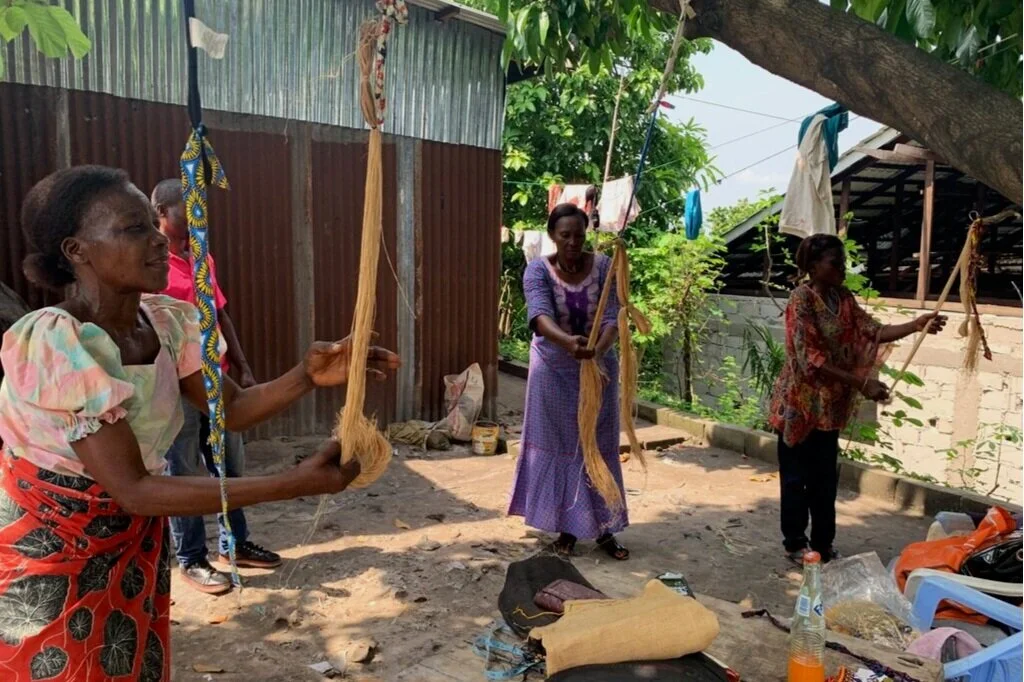Kilubukila
Kilubukila
Creating economic opportunities for female artisans and building a sustainable infrastructure for the Congolese design industry
BCTA MEMBERSHIP STATUS
Alumni
SECTOR
Consumer Goods; Agriculture Food and Beverage
HEADQUARTERS
United Kingdom
REGION OF INITIATIVE
Africa
SDG CONTRIBUTION
The Impact Goal
Kilubukila joined Business Call to Action in December 2020 and made a commitment to have a fully equipped atelier showroom capable of employing 60+ artisans with 75% female makers in Kinshasa by 2021; increase the atelier production by 75%, allowing for the training of 200 individuals, and an increase of revenue of 150% of its partners on average in Kinshasa by 2022; and establish the association of designers and artisans representing 50% of the artisan population in Kinshasa by 2023.
The Market Gap
The interior design and craft market in the Democratic Republic of Congo has few modern options that can be combined with 'African style'. Most of the existing products available are traditional crafts with colonial aesthetics or products that been manufactured and imported from abroad. Kilubukila’s goal is to respond to the demand for modern handcrafted African goods made with authenticity and favouring local people, skills, and cultures. Through its array of products, Kilubukila creatively challenges its artisans as well as the consumers on what modern Congolese designs are.
The Business Solution
The unique feature of Kilubukila is its usage of local culture and tradition to build modern aesthetic and target new markets for designing products. Kilubukila’s business model revitalize the Kuba fabric of Congo with the Mandombe script interpreted as a pattern and ultimately used as a “modern” African fabric. The Kilubukila atelier engages low-income women artisans as employees to produce textiles with the Mandombe script.
Kilubukila works with local partners in a collaborative “studio approach” to offer commercial opportunities and build economic resilience for local craftsmen and craftswomen. This brings together local and global sensitivities toward production, use of materials, collaboration, and sustainability as a design and practice philosophy.
About Kilubukila: Established in 2016, Kilubukila is a British-Congolese social business that bridges the gap between craft and design. They curate cultural projects in design and food out of a passion to change the narrative and build economic opportunities for their partners in the DRC.



